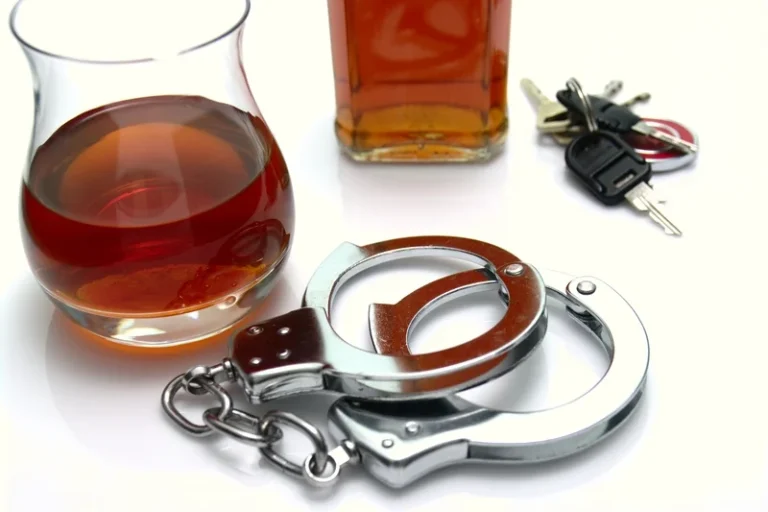
Or maybe you’re just looking to improve your health, wake up hangover-free and give your liver (and your heart and brain) a break. Daily drinking can have serious consequences for a person’s health, both in the short- and long-term. Many of the effects of drinking every day can be reversed https://ecosoberhouse.com/ through early intervention. Deciding to quit drinking and following through isn’t just about willpower. Many other factors go into play with these difficult and trying scenarios. Tolerance, dependence, social habits, setting, the biology of the individual and more must all be considered.

Long-Term Alcohol Use and Weaning
The reason for this is that alcohol withdrawal symptoms can quickly snowball and worsen. Mild anxiety, for example, can turn into overwhelming agitation or even hallucinations. When symptoms become that serious, it can be difficult to seek help. Seeking help as early as possible during the withdrawal process is the best way to stay safe as you cleanse your body of alcohol. Medical supervision provides several benefits during the weaning process.
Treatment Programs
However, quitting cold turkey or tapering is not advisable for people with an AUD. In addition, social pressures can make it hard to quit drinking, especially if your friends or family also drink heavily. Quitting drinking can feel very isolating, how to taper off alcohol making it even more difficult to do alone at home without medical support. In addition to increasing your awareness of how much you drink, the process of recording these incidents can itself help you to feel more in control of your recovery.

Tapering Off Alcohol Vs. Quitting Cold Turkey

In medical detox, you receive around-the-clock care from doctors and nurses to help prevent and treat alcohol withdrawal symptoms and their complications. This can set you up for a safe and effective detox and put you in a good position to continue your recovery in rehab. When you quit drinking, you should also seek medical advice about any alcohol withdrawal symptoms you experience. This includes early symptoms of alcohol withdrawal, such as mild tremors and anxiety.
- Alcohol withdrawal symptoms can start as early as 6 hours after the last drink and can range from mild to severe, depending on the amount and duration of alcohol consumption.
- By opening up about your relationship with alcohol, you might also encourage others to explore their own drinking habits.
- A substitution taper can involve substituting a prescription drug for alcohol.
- It’s crucial to consult with a healthcare professional before starting an alcohol tapering plan.
- Slowly reduce the amount of alcohol you consume each day until you reach sobriety.
- If you’ve tried to quit multiple times, each subsequent withdrawal can become more severe.
- Talk with a healthcare professional if you’re concerned you may experience detox symptoms when quitting drinking or cutting back.
This medical supervision allows for some patients to quit drinking cold-turkey without compromising safety. While tapering off alcohol can be an effective strategy for some individuals, it should be noted that what works for one person may not be safe for everyone. Whether you’re a daily imbiber, heavy drinker, or frequent binge drinker, you’re likely to experience withdrawal symptoms when you quit. Unfortunately, there’s little to no evidence that tapering off reduces the effects of alcohol withdrawal, some of which can be severe or even life-threatening. Quitting with proper medical supervision may be more important than whether you stop gradually or all at once.
- If you’re struggling to wean off alcohol, it might be best to seek addiction treatment.
- The reason for this is that alcohol withdrawal symptoms can quickly snowball and worsen.
- All of these withdrawal symptoms are common during acute alcohol withdrawal syndrome.
- This method can lead to withdrawal symptoms, especially if you’ve been a heavy drinker.
- If you properly taper your alcohol use, you’re less likely to experience alcohol withdrawal symptoms.
Get online support.
- Sometimes, they may experience seizures and delirium tremens (DTs).
- Follow your patient contract as well as your provider’s medication regimen and treatment recommendations.
- Eating nutritious food, exercising, and getting enough sleep can help reduce some withdrawal symptoms, such as mood swings.
- This can cause seizures and delirium tremens, a severe form of withdrawal marked by tremors and hallucinations.
Tapering and Alcohol Withdrawal Symptoms

How Long Does It Take to Wean Off Alcohol?
- Every person has unique needs, and tapering off may not be an adequate solution to reduce or stop drinking.
- However, certain food groups also have benefits when it comes to helping with the discomfort of withdrawal symptoms and detoxification.
- Getting professional treatment and long-term support are two of the most valuable strategies for avoiding relapse.
- You may not need to completely reinvent your life to quit drinking, but making a few changes in your surroundings to help avoid alcohol triggers can make a big difference.
- They can provide recommendations to help you avoid harmful side effects.
Have a Plan

